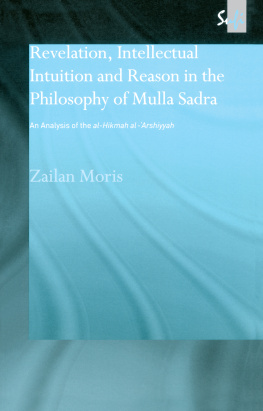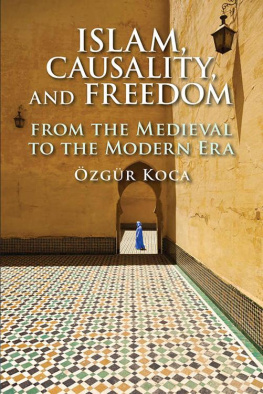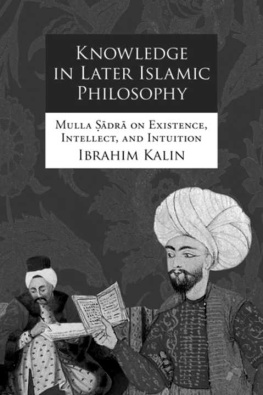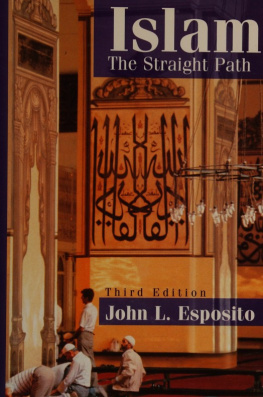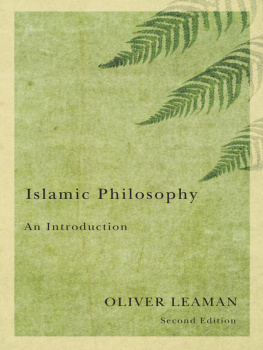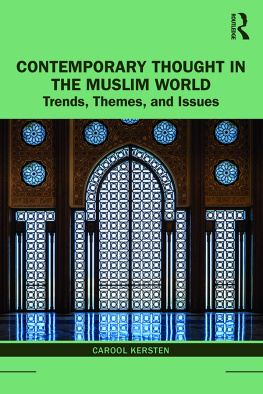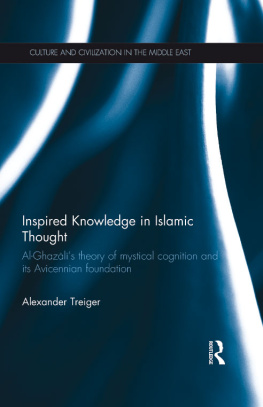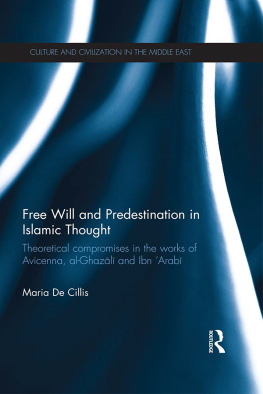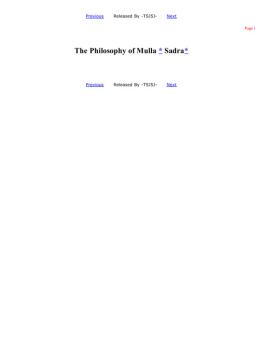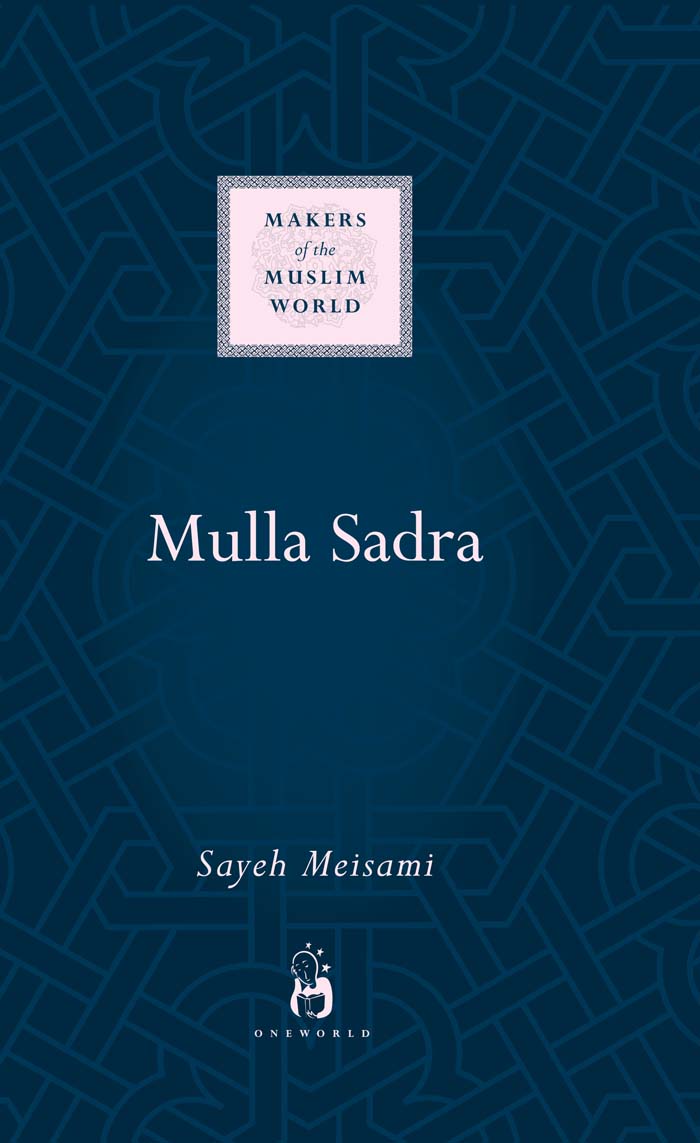
Mulla Sadra
TITLES IN THE MAKERS OF THE MUSLIM WORLD SERIES
Series Editor: Patricia Crone, Institute for Advanced Study, Princeton
Abd al-Ghani al-Nabulusi, Samer Akkach
Abd al-Malik, Chase F. Robinson
Abd al-Rahman III, Maribel Fierro
Abu Nuwas, Philip Kennedy
Ahmad al-Mansur, Mercedes Garca-Arenal
Ahmad ibn Hanbal, Christopher Melchert
Ahmad Riza Khan Barelwi, Usha Sanyal
Akbar, Andr Wink
Al-Mamun, Michael Cooperson
Al-Mutanabbi, Margaret Larkin
Amir Khusraw, Sunil Sharma
Ashraf Ali Thanawi, Muhammad Qasim Zaman
Chinggis Khan, Michal Biran
El Hajj Beshir Agha, Jane Hathaway
Eljah Muhammad, Herbert Berg
Fazlallah Astarabadi and the Hurufis, Shazad Bashir
Ghazali, Eric Ormsby
Hasan al-Banna, Gudrun Krmer
Husain Ahmad Madani, Barbara Metcalf
Ibn Arabi,William C. Chittick
Ibn Fudi, Ahmad Dallal
Ikhwan al-Safa, Godefroid de Callatay
Imam Shafii, Kecia Ali
Karim Khan Zand, John R. Perry
Mehmed Ali, Khaled Fahmy
Muawiya ibn abi Sufyan, R. Stephen Humphreys
Muhammad Abduh, Mark Sedgwick
Nasser, Joel Gordon
Nazira Zeineddine, miriam cooke
Sadi, Homa Katouzian
Shaykh Mufid,Tamima Bayhom-Daou
Usama ibn Munqidh, Paul M. Cobb
For current information and details of other books in the series, please
visit www.oneworld-publications.com

Mulla Sadra
SAYEH MEISAMI

MULLA SADRA
A Oneworld Book
Published by Oneworld Publications 2013
Copyright Sayeh Meisami 2013
All rights reserved
Copyright under Berne Convention
A CIP record for this title is available
from the British Library
ISBN 9781851684298
eISBN 9781780743349
Typeset by Jayvee, Trivandrum, India
Printed and bound by TJ International, UK
Oneworld Publications
10 Bloomsbury Street,
London WC1B 3SR, England
Stay up to date with the latest books,
special offers, and exclusive content from
Oneworld with our monthly newsletter
Sign up on our website
www.oneworld-publications.com
For Amir and Sam
CONTENTS
ACKNOWLEDGMENTS
This small book would not have been written without the initial encouragement of Mohammed Rustom and his genuine help all along the way. I am also grateful to John Kloppenborg, Shafique Virani, and Laury Silvers at the University of Toronto for the support that they gave me when I most needed it over the time I was preparing the manuscript. I would also like to thank Patricia Crone, the series editor, for her patience and precision towards improving my work and Sajjad Rizvi for his great editorial comments on my manuscript.
There are so many scholars, professors, colleagues, friends, and students in Iran who I wish to thank for having been wonderful sources of inspiration during both my student years and teaching career. Among these people I would like to specially appreciate Mustafa Malekian and Mahmoud Khatami for their unique intellectual and spiritual generosity.
I should also thank Amir for all the love and support he has given me throughout our life together not only as my husband, but as an intellectual with brilliant ideas, passion, and sincerity.

THE MAN AND HIS WORK
W hen Mulla Sadra (d. 1045/163536) started his intellectual career, Islamic philosophy in Iran had already been through its golden days with great philosophers such as Farabi (d. 339/950), Ibn Sina (d. 428/1037), and Suhrawardi (d. 586/1191). Between Suhrawardi and Mulla Sadra, philosophical endeavors consisted mostly in commentaries, apologies, occasional solutions to past problems, and, above all, attempts to synthesize philosophy with both theology and mysticism. The best known commentators are men such as Qutb al-Din Shirazi (d. 710/1311), Nasir al-Din Tusi (d. 672/1274), Jalal al-Din Dawani (d. 908/150203) and the ninth/fifteenth-century Dashtaki family. Thanks to Mulla Sadra, the synthetic vision of Islamic philosophy was given new life. He developed a synthetic approach to philosophy that became the backbone of all that emerged later. It was in line with his role as a system builder that he revived the Ibn Sinan tradition of writing voluminous books on different areas in metaphysics and touching on a variety of subjects such as being, knowledge, the soulbody relation, the beginning and end of cosmos, and God. His magnum opus, al-Hikmat al-mutaaliya fil-asfar al-aqliya al-arbaa (referred to subsequently as al-Asfar), is comparable in its magnitude only with al-Shifa (The Metaphysics of The Healing) by Ibn Sina. These two philosophers, though many centuries distant in time, are similar in representing the climax of intellectual tradition at crucial points in the history of Islamic civilization.
Mulla Sadras philosophical system is built upon the findings of earlier masters, and in many cases his stand on philosophical and theological issues makes sense only as a response to older views. This does not detract from the originality of his philosophy, which, following the title of his magnum opus, has become famous as Transcendental Philosophy (al-Hikmat al-mutaaliya). Transcendental philosophy belongs to the larger category of mystical philosophy, which is characterized by a synthetic methodology, meaning a combination of gnosis and logic, which also draws on the Quran and Hadith. The result is mystical philosophy, a philosophy of the type which is tied to Islamic prophecy and which is often known in the West as theosophy. The rise and development of fully fledged mystical philosophy coincided with the transformation of Iran into a Shii country in the Safavid era though there had been preliminary steps in that direction in the centuries before.
It is a historical fact that many Shii ulama of Sadras day were not happy with the esoteric side of his philosophy due to the general distrustful attitude to Sufism under the Safavids. His belief in the unity of Being (wahdat al-wujud), his reliance on interpretation beyond the surface of religious texts (tawil), and particularly the unveiling of hidden meanings in the Shii texts, made him the target of attacks. Nevertheless, he himself was a champion of Shii thought, and he identified the central Shii doctrine of imamate with the Sufi sainthood or Friendship of God (wilaya). For Sadra, the Friend of God, whom he also calls the Perfect Human (al-insan al-kamil), borrowing the concept from Ibn Arabi (d. 638/1240), is the ultimate purpose of creation. He considers the Twelve Imams as the most perfect instances of wilaya.
Although Sadra has been read by both Sunni and Shii scholars in different parts of the world, including Iran, Iraq, India, Pakistan, Afghanistan, and Turkey, his particular significance for the Shii is undeniable. The one and only World Congress on Mulla Sadra, held in 1999 in Tehran and constantly referred to by Sadra scholars all over the world, is emblematic of this significance. The reason he has turned into the most celebrated philosopher in Iran after the Islamic Revolution cannot simply be reduced to politics, though political use has certainly been made of him. Serious attempts to expand Mulla Sadra scholarship, and to introduce him to Western academia, had already started almost a decade before the revolution inside the Imperial Academy of Iranian Philosophy. And in the Shii seminaries of Qom, Mashhad, and Najaf, studying and teaching Sadras works under both rational and revealed sciences has been an established tradition since the Qajar period (11701304/17851925).


